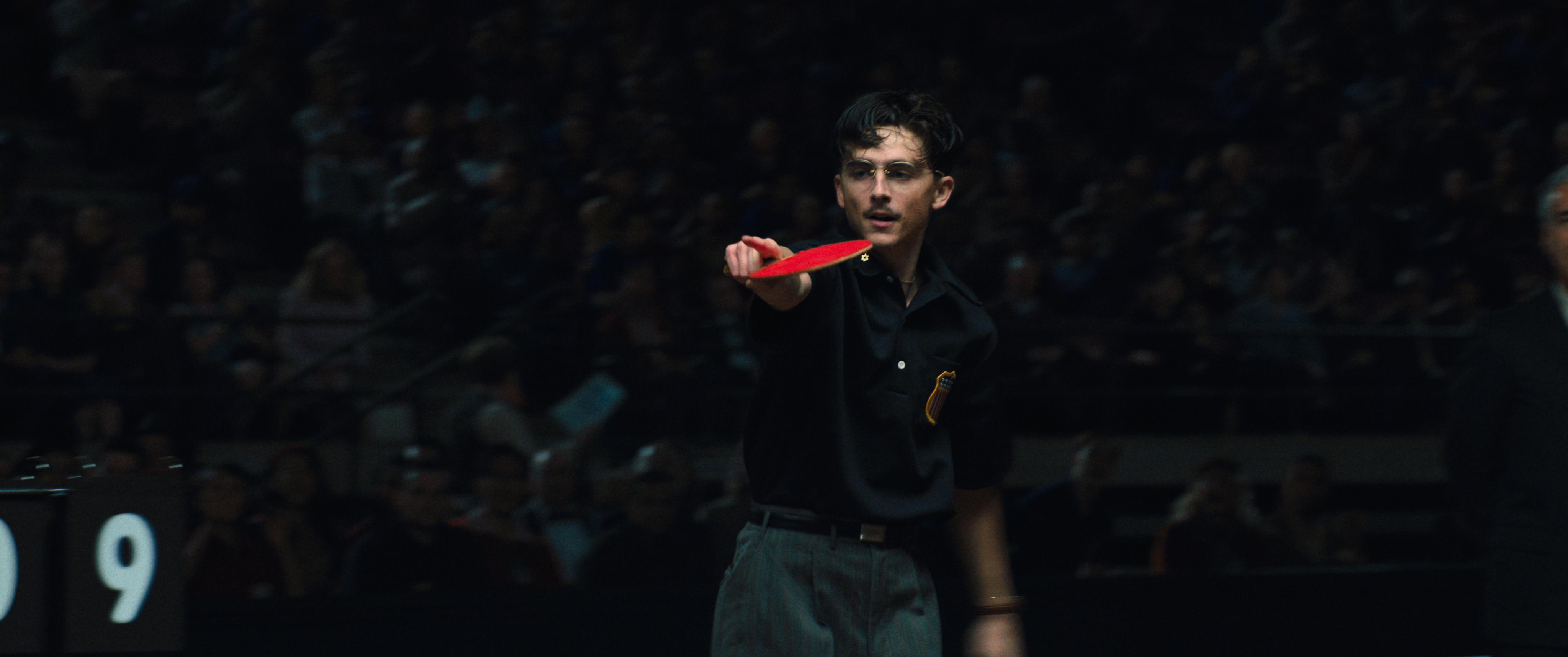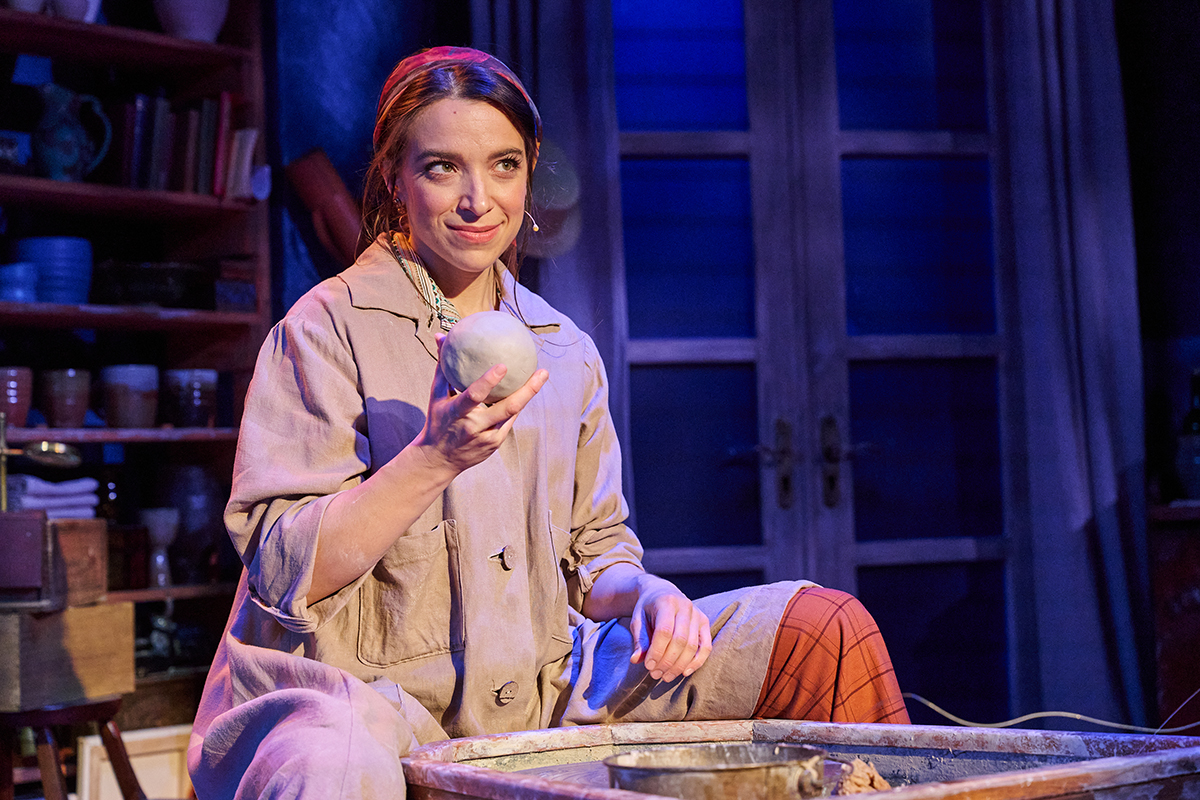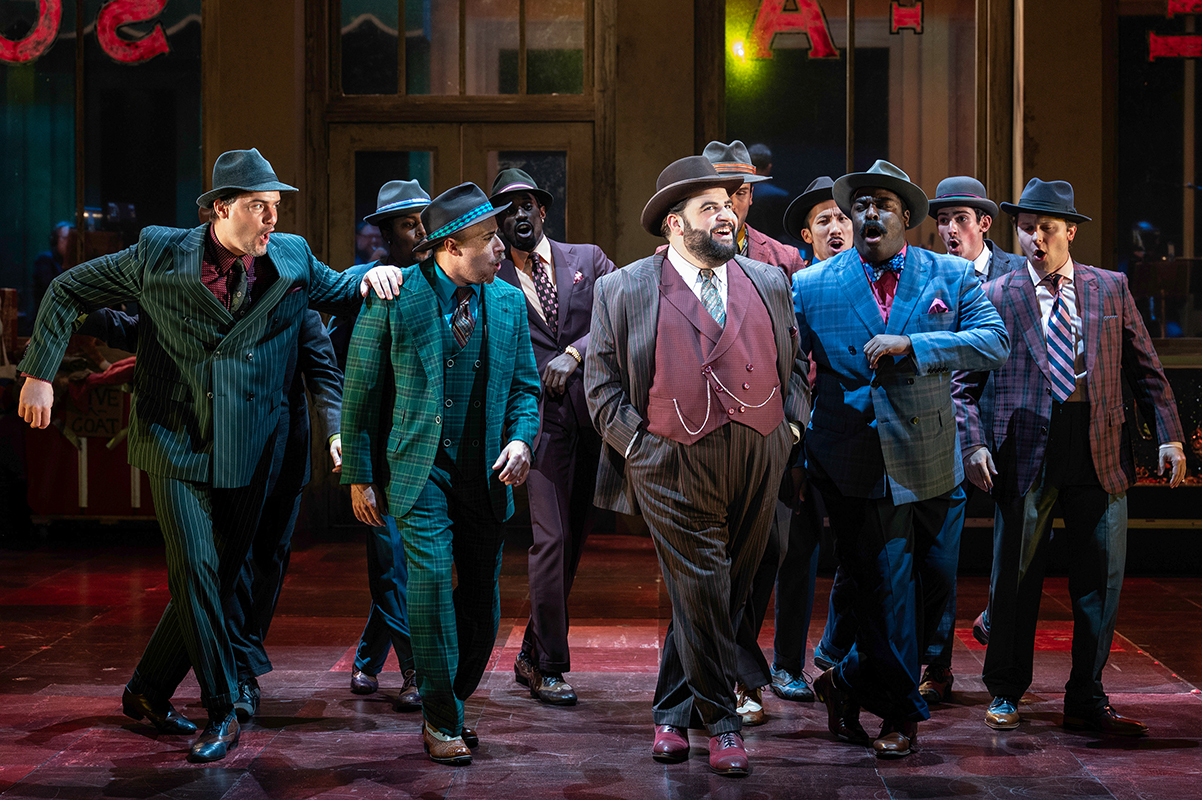Despite a Strong Leading Man and Cast, ‘Babbitt’ Falls Flat
Matthew Broderick is a crowd-pleaser in "Babbitt," but don't expect the play's takeaways to fill more than an index card.

Let’s cut to the chase: those who appreciate Sinclair Lewis’ satirical novel Babbitt may find Joe DiPietro’s theatrical adaptation a gratifying box-checker. However, for those who haven’t (recently or ever) read it, director Christopher Ashley’s production is too thin on the ground to resonate.
In fact, dramaturg Drew Lichtenberg’s elegantly concise program essay should be seen as a companion — and required pre-curtain reading. Along with an excellent summary of Lewis’ oeuvre, it does a grand job of shoring up some of what never quite translates from book to stage. Whatever Lewis may have achieved in his novel (which, in fact, was called a book without a plot), neither adapter nor director have managed to meet the challenge of bringing it wittily and wryly to life.
On the plus side, DiPietro’s interpretation certainly raises the interesting, if depressing, fact that the Lewis of 1922 shared the same frustration gripping the nation today: how easily people take a side; how quickly politicians lie and cajole to hold onto power.
He also offers, with some clarity, Lewis’ more intriguing observations on a certain type of American (male) skating along in mindless certainty with seemingly nothing ever really at stake. And although setting the play in a modern library is obtuse (unless you have read the program), the meta-dance between past and present succeeds in suggesting movement in time, but also in values.
Despite director Ashley’s skill in bringing a snappy, stylized delivery to the production, there is something about this vehicle that has dulled every edge. It may, more or less, follow Lewis’ version of the vacuous protagonist George F. Babbitt, a middling, middle-American who stumbles through a minor midlife crisis involving a detour into politics and infidelity. But the emphasis on similarities with today’s political scene adds nothing to the far more sophisticated (and funny) conversation going on in the zeitgeist.
The various scenarios and deadpan dialogue may make their points, but without more of the “why,” the political and gender-based ironies simply fail to ignite. Even Babbitt’s wife, desperately frustrated with her mundane existence, only ever asks for more “ideas.”
And if the use of an ensemble of storytellers (who also play various roles) matches the novel’s mundane tick-tock of Babbitt’s existence with a certain cadenced charm, without more in the way of dramatic substance, it eventually begins to grate. Frankly, without an inherent wit or genuine insight into what makes George Babbitt tick, it all ends up whiffing rather strongly of a high school civics play.
Of course, if you’re happy to take it at face value and enjoy the bland ironies, minor fripperies (including a seriously incongruous moment of partial nudity), and the chance to see a stellar actor of stage and screen, then you may be thoroughly content to nod along with the overt messaging. You might also appreciate this work as an earnest attempt at representing Lewis’ construct, a mindset that will certainly help in rationalizing the sketchiness of the characters and the short-shrift given the themes. Either way, don’t expect the takeaways to fill more than an index card.
In the title role, Matthew Broderick (looking suspiciously buff for a middle-aged desk jockey) catches the right balance here, carrying the play with a suitably affable Babbitt convinced of his own convictions, whatever they might be on any given day. Playing it skillfully straight, Broderick serves the messaging to a tee while delivering the occasional crowd-pleasing moments without disrupting the tenor any more than is necessary.
As his long-suffering wife and Storyteller #1, Ann Harada has the charisma to match Broderick’s, but there is no interest in making her as relevant as the politics — she never escapes the caricature of the decade’s old, frustrated housewife. As Storyteller #5, as well as Babbitt’s dream girl and mistress, Mara Davi delivers with aplomb and proves a good mover.
In smaller roles, Matt McGrath, as Storyteller #3, offers chameleon-like skill in presenting his various characters, while Nehal Joshi brings enough urgency to his Storyteller #2 and roles to keep the stupor at bay. A tad less aligned is Ali Stroker’s Storyteller #4 and a role as Babbitt’s young daughter: she’s got gads of charisma but is playing to a much bigger venue.
And speaking of size, it’s hard not to think here of the sadly extinct American Century Theater, the metro area’s one-time specialists in unusual and forgotten American plays. Penniless, they would have staged this production in one of their small, borrowed spaces.
Perhaps in a more intimate setting, along with their idiosyncratic vision, the play might have blossomed into a more dimensional and intriguing Babbitt. Alas, any such expectations for this bigger-ticket version should be checked at the door.
Babbitt (★★★☆☆) runs through Nov. 3 at The Shakespeare’s Harman Hall, 610 F St. NW. For tickets, call 202-547-1122 or visit www.shakespearetheatre.org.
Support Metro Weekly’s Journalism
These are challenging times for news organizations. And yet it’s crucial we stay active and provide vital resources and information to both our local readers and the world. So won’t you please take a moment and consider supporting Metro Weekly with a membership? For as little as $5 a month, you can help ensure Metro Weekly magazine and MetroWeekly.com remain free, viable resources as we provide the best, most diverse, culturally-resonant LGBTQ coverage in both the D.C. region and around the world. Memberships come with exclusive perks and discounts, your own personal digital delivery of each week’s magazine (and an archive), access to our Member's Lounge when it launches this fall, and exclusive members-only items like Metro Weekly Membership Mugs and Tote Bags! Check out all our membership levels here and please join us today!


























You must be logged in to post a comment.